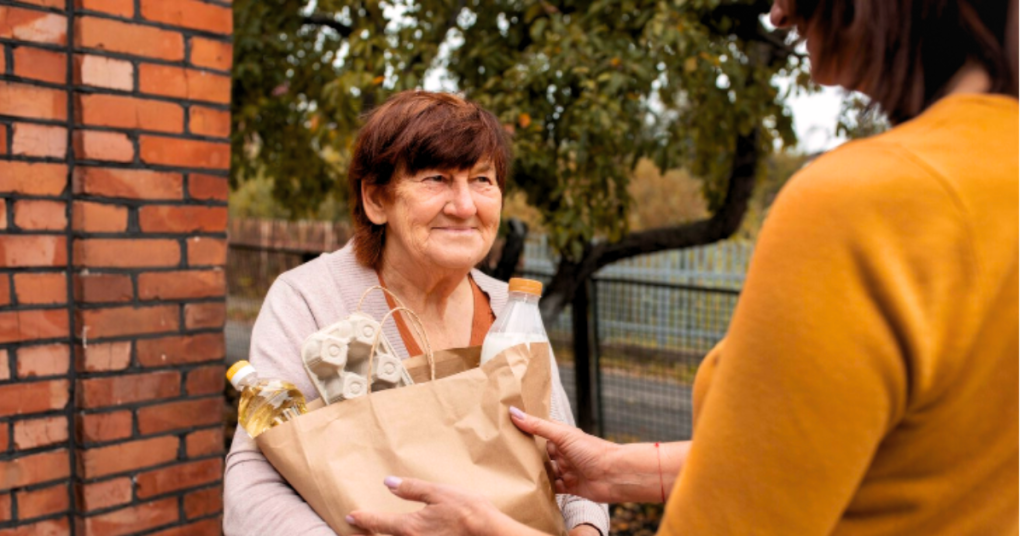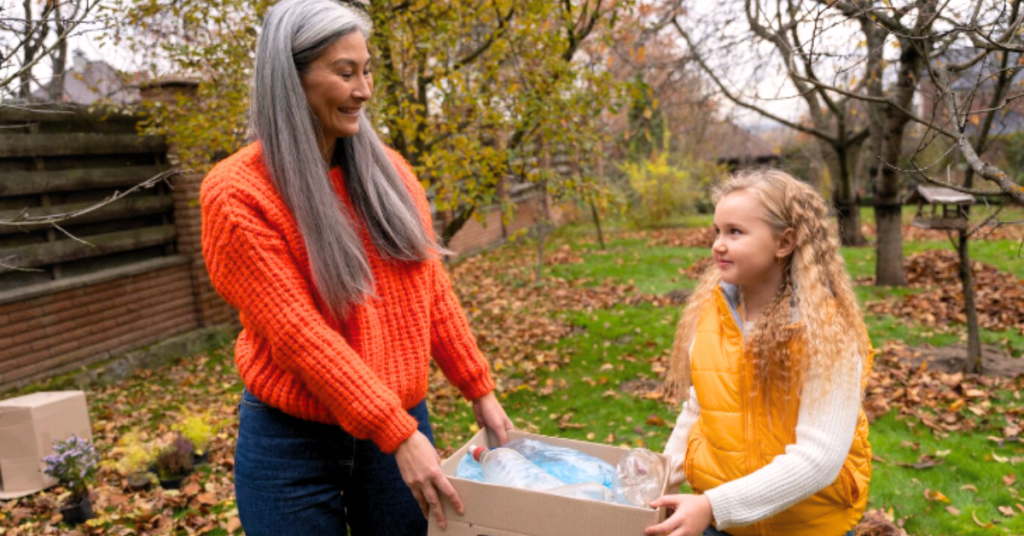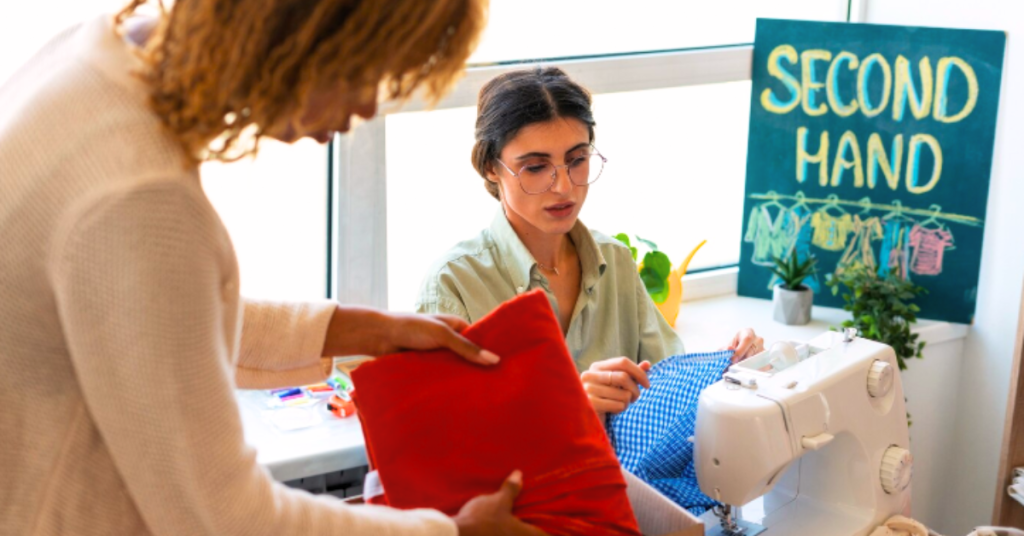In a world that often feels overwhelming, where the news cycles are filled with chaos and negativity, it’s easy to forget the power of kindness. Yet, small acts of kindness—those little moments of goodwill—can spark a chain reaction that leads to lasting change, both in our communities and within ourselves.

The Ripple Effect of Kindness
Imagine a simple scenario: you hold the door open for someone at a coffee shop. That person, feeling appreciated and valued, goes on to pay a compliment to a colleague or help a neighbor carry groceries. Each act of kindness has the potential to inspire more kindness, creating a ripple effect that can spread far beyond its initial act.
Research supports this notion. Studies show that kindness is contagious; witnessing an act of kindness can encourage observers to pay it forward. The more we engage in and witness these small gestures, the more they become ingrained in our social fabric. This collective shift towards kindness can foster stronger communities and create a culture of compassion.
Personal Transformation
Acts of kindness don’t just benefit others; they transform us as well. Engaging in kind acts can boost our own happiness and well-being. When we help others, our brains release oxytocin, sometimes referred to as the “love hormone.” This not only makes us feel good but can also lower stress levels and increase feelings of connection.
Moreover, regular participation in kind acts can reshape our perspectives. It encourages gratitude and shifts our focus away from what we lack to what we can give. Over time, this shift can alter our attitudes, making us more resilient and optimistic, and reinforcing our commitment to being kind.
Building Community
In communities, small acts of kindness can lead to significant changes. Consider local initiatives like food drives, neighborhood cleanups, or simply lending a listening ear to someone in need. These seemingly small contributions help address larger societal issues—like hunger, environmental degradation, or mental health challenges.

For example, a group of friends might start a weekly volunteer day at a local shelter. Over time, their consistent presence not only aids those in need but also strengthens friendships and builds community ties. When people come together to support one another, they create networks of care that can uplift everyone involved.
Kindness in the Digital Age
In our increasingly digital world, acts of kindness can transcend geographical barriers. Social media platforms provide unique opportunities for kindness, whether through supportive comments, sharing uplifting content, or organizing virtual fundraising events. A simple retweet or share can amplify a message of hope or solidarity, reaching countless others and inspiring them to take action.
However, it’s important to balance online kindness with offline actions. The most impactful changes often occur when we take the initiative in our daily lives—whether it’s helping a neighbor, donating to a local charity, or simply offering a smile to a stranger.
Making Kindness a Habit
How can we ensure that kindness becomes a regular part of our lives? Here are a few tips to cultivate kindness daily:
- Start Small: Look for simple opportunities to be kind. Hold the door, compliment a colleague, or send a thoughtful message to a friend.
- Set Intentions: At the start of each day, commit to performing at least one act of kindness. It can be as simple as checking in on someone or sharing a positive quote.
- Reflect: Take time to reflect on your experiences with kindness. How did it make you feel? How did it impact others? Journaling about these experiences can deepen your understanding of their significance.
- Lead by Example: Inspire others by sharing your kindness journey. When people see the positive outcomes of your actions, they may be motivated to follow suit.
- Create a Kindness Challenge: Engage friends, family, or coworkers in a kindness challenge, where you all commit to doing a certain number of kind acts over a week or month.

Conclusion
Small acts of kindness are like seeds—they can grow into something beautiful when nurtured. By committing to kindness, we not only enhance our own lives but also contribute to the well-being of those around us. In a world that sometimes feels divided, remember that every act of kindness has the potential to create a ripple effect, leading to profound and lasting change. So let’s start small, be kind, and watch as our world transforms, one act at a time.
FAQ’s
What exactly are small acts of kindness?
Small acts of kindness are simple, everyday actions that show care and consideration for others. Examples include complimenting someone, helping a neighbor, or offering a smile to a stranger.
How can small acts of kindness lead to lasting change?
When people witness or receive acts of kindness, it inspires them to pay it forward, creating a ripple effect. This collective behavior fosters a culture of compassion and strengthens community bonds over time.
Can being kind actually improve my mental health?
Yes! Engaging in acts of kindness has been shown to boost happiness, reduce stress, and enhance feelings of connection. It can help shift your focus from negativity to positivity.
How do I incorporate kindness into my daily routine?
Start by looking for small opportunities each day, like holding the door open or giving a compliment. Setting daily intentions or participating in community service can also help make kindness a habit.
Is online kindness as impactful as in-person acts?
While online kindness (like supportive comments or sharing uplifting content) can reach a wide audience, in-person acts often create deeper connections. Striking a balance between both can maximize your impact.
What are some examples of kindness challenges?
A kindness challenge could involve committing to perform a certain number of kind acts in a week, creating a group where everyone shares their experiences, or even starting a community initiative.
What if I feel overwhelmed or unsure where to start?
It’s perfectly normal to feel that way! Begin with small, manageable acts. Focus on what feels comfortable for you, and gradually increase your involvement as you feel more inspired.
